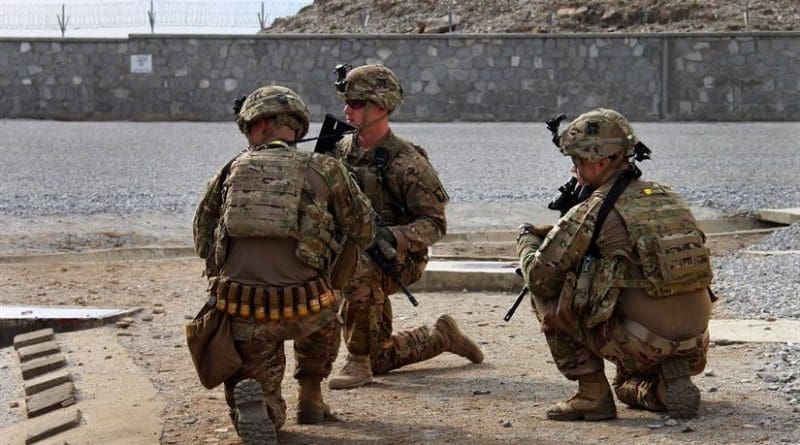Afghan Security Forces Growing To Take Over Mission, General Says
By DoD News
By Terri Moon
The Resolute Support mission to train, advise and assist Afghan security forces is producing tangible results, Army Gen. John W. “Mick” Nicholson Jr., commander of the Resolute Support mission and U.S. Forces Afghanistan told reporters at the Pentagon.
Having traveled here from his post in Afghanistan, Nicholson gave reporters an operational update and emphasized that Resolute Support, one of two missions in Afghanistan, has been particularly important as “we grow [the Afghans] to take over this mission for themselves.”
The general noted the number of U.S. forces in Afghanistan once totaled 140,000 troops, but now the troop strength is now about one-tenth of that.
“Our mission has changed from counterinsurgency to train, advise and assist,” he said.
Afghans’ Successful Operation Shafaq
The progress of Afghan security forces is particularly evident in their special forces, police special units and its air force among other elements in which the Afghans conduct the majority of their operations, he said.
Since the security forces’ Operation Shafaq — meaning dawn — began about six months ago, its three phases so far have been successful, the commander said.
The first was the successful defense of Kunduz in April and May when the Afghans defended against a Taliban attempt to take the city, he said.
In June and July, the security forces successfully shifted to the south in Helmand, western Kandahar and Uruzgan to expand their security zone, Nicholson said.
Later in July, they successfully concentrated on Nangarhar in the east to conduct counter Islamic State of Iraq and The Levant operations, he said, adding that the operations were conducted by Afghan special forces enabled by U.S. counter-terrorism forces, and resulted in the deaths of the top 12 leaders of ISIL to include their emir, Hafiz Saeed Khan, and trading roughly 25 percent of the organization of their fighters and reducing their space in Nangarhar.
The general noted that when the enemy attempted to take several provincial capitals this summer, the Afghans were able to restore, stabilize and retain Lashkar Gah, Kunduz, and Tarin Kowt in Uruzgan.
“In every case, [ISIL] failed … [and] these have been important points of the campaign for the Afghans,” he said.
Counter-Terrorism Vital in Region
“Of the 98 U.S.- or U.N.-designated terrorist organizations around the globe, 20 of them are in the [Afghanistan and Pakistan] region,” Nicholson said, adding that’s the highest concentration of different terror groups in any area in the world.
“While the numbers may be higher in some of these groups elsewhere, the concentration [of] groups in this region is important,” he said, noting the second mission in Afghanistan is Operation Freedom Sentinel, which is primarily focused on counter-terrorism operations.
“Our presence there is critical to keeping pressure on these networks so [the enemy] cannot realize their international ambitions,” Nicholson said.

